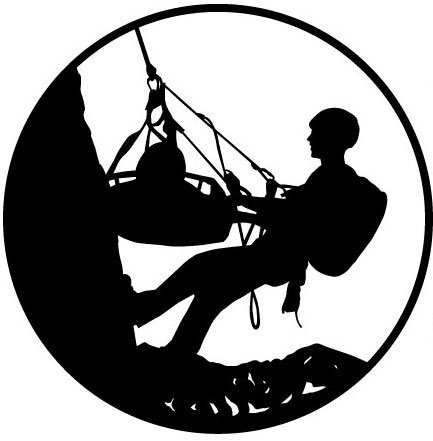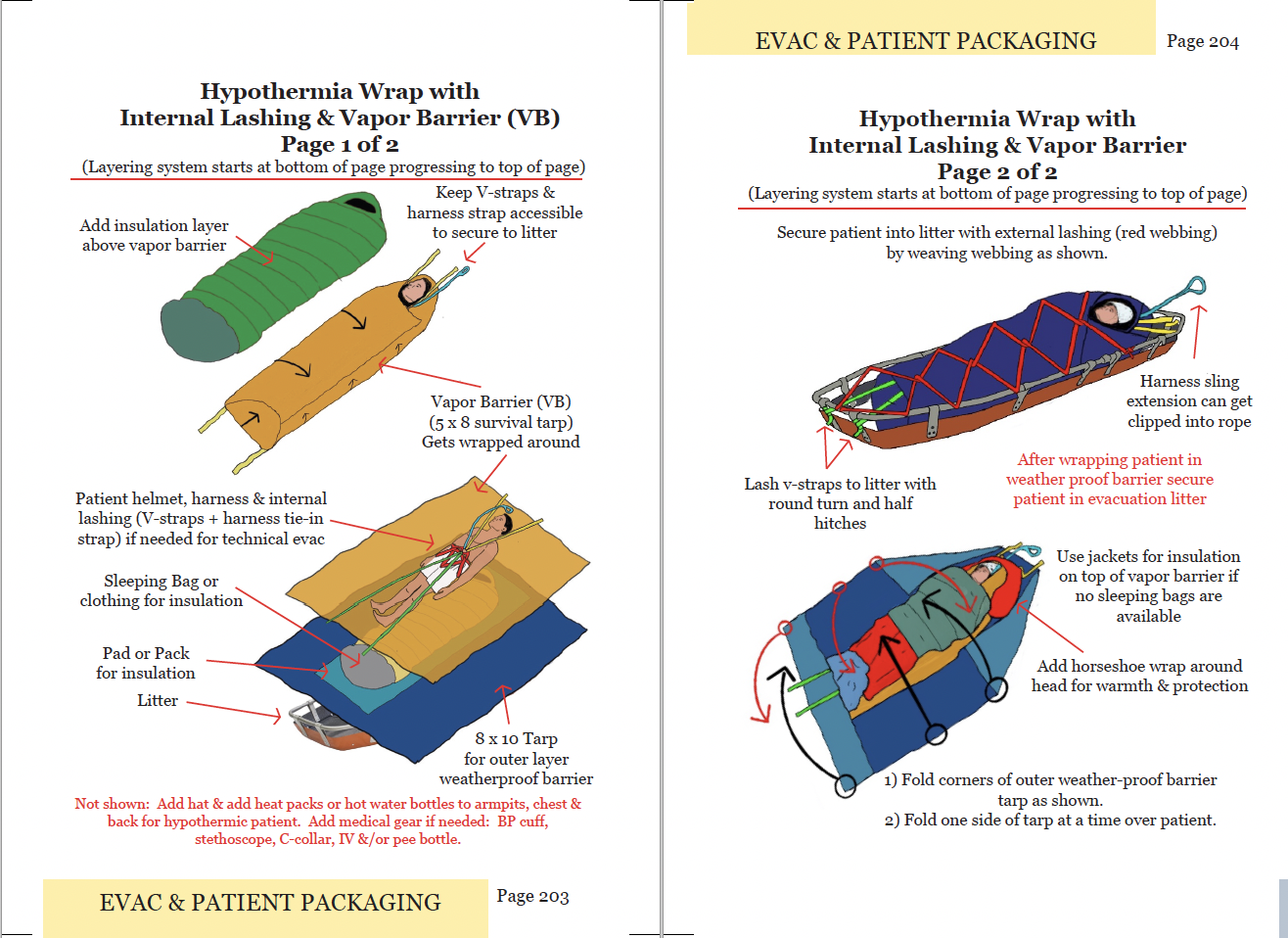
WFR Certification for High-Performance SAR Teams
Why take a SARMED WFR instead of a traditional WFR?
-

Medicine for Wilderness Rescuers
Rescuers will be taught the most recent wilderness medicine protocols and evidence-based medicine from the most updated research from the Wilderness Medical Society, Prehospital Life Support, Denver Metro protocols, and the International Commission on Alpine Rescue.
-
Patient Packaging & Wilderness Evacuation
Enhance your SAR patient packaging skills and become confident using Skeds, Stokes litters, Vacuum mattresses, Foxtrots, Scoops, and learn how the pro's safely load and evacuate patients. Additionally, practice building improvised litters from tarps, ropes, backpacks, & other common outdoor equipment.
-

Perform under Pressure
Become a honed wilderness rescuer who is confident and competent to lead & manage any wilderness emergency. Learn the tenets of wilderness leadership & teamwork that the special forces and elite mission-critical teams utilize when every second counts.

Certifications Awarded in SARMED Course
WFR
A WFR Certification valid for 3 years. Our WFR curriculum follows the practice guidelines published by the Wilderness Medical Society and the Scope of Practice documents published by the Wilderness Medicine Education Collaborative. Additionally, we incorporate Curriculum from the NREMT Emergency First Responder SOP.
CPR
Students will receive a nationally recognized American Heart Association (AHA) or American Safety & Health Institute (ASHI) Basic Life Support CPR Certification valid for 2 years. Many WFR institutions only offer community level CPR certification.
Anaphylaxis
Students will receive a nationally recognized American Safety & Health Institute (ASHI) Use and Administration of Epinephrine Auto-Injectors Certification valid for 2 years.
Stop the Bleed
Students will receive a nationally recognized certification from The American College of Surgeons’ STOP THE BLEED® program.
“You nailed it! I feel so much more confident and capable coming out of your class. Much more so than my first full week class with a competitor. You have a great way of simplifying and helping us focus on what’s important.”
— Vail Mountain Rescuer SARMED WFR Refresher Course Evaluation
Pricing
Hybrid SARMED WFR Course
$800/Student
This hybrid course consists of 30 hours of self-paced hybrid work followed by a 5-day field course.
A minimum of 6 students is needed to hold the course.
The typical class size is 8-12 students.
Additional fees may apply for instructor travel & lodging.
Hybrid SARMED WFR Refresher
$375/Student
This hybrid course consists of 8 hours of self-paced hybrid work followed by a 2-day field course.
A minimum of 6 students is needed to hold the course.
The typical class size is 8-12 students.
Additional fees may apply for instructor travel & lodging.
SARMED Courses include
SARMED E-Textbook
The course cost includes two year access to the online SARMMED WFR E-Textbook with hundreds of illustrations, pictures, and videos to help prepare you for the 5-day field session. This E-Textbook includes the latest wilderness medicine protocols from the Wilderness Medical Society, International Commission for Alpine Rescue & Prehospital Trauma Life Support.
Field Guide
A 4X6 Wilderness Rescue Medicine Field Guide that easily fits in your cargo pocket, chest harness or backpack. The field guide is 232 pages, color, & weatherproof. Additionally each student will receive two 50-page patient care notebooks to document patient care in the field.
Protocol Consulting
After participants are certified WFRs, we will work with your medical director and medical officer to establish written WFR protocols authorized by your teams medical director. Additionally, we will provide your team with an audit of current medical and rescue equipment and make recommendations to better serve your team.
SARMED Daily Itinerary
-
Course Introduction
Wilderness Medicine Protocols
Wilderness Medical-Legal/Rescuer Professional Liability
Golden Principles of Wilderness Medicine
Patient Assessment Field Scenarios
Crew Resource Management
Communication/Documentation
Rescue Leadership Principles: Getting the Victory
Airway Assessment & Management
Oxygenation & Ventilation Basics
Wilderness Airway Improvisational Techniques
Stop the Bleed Training & Certification
Shock & Bleeding
Internal Bleeding Assessment & Treatment
External Bleeding Assessment and Treatment
Pressure bandage/tourniquet/improvised tourniquet
Wound packing and hemostatic agents
CPR & Wilderness CPR protocols
Pit crew approach/Adult CPR/Pediatric CPR/Neonatal CPR
-
Orthopedic Injuries
Fracture Assessment & Splinting
Wilderness improvisational splinting
Taping and Wrapping
Wilderness wound care
Prolonged care of wilderness wounds
Wound closure
Preventing & managing infections
Burns
Impaled Objects
Neurological Injuries
TBI and concussion management
Spinal cord injuries and selective spinal criteria
Back-boarding & Patient Packaging
Back boarding 101 & C-Collar, log-roll
Chest/Abdominal/GI Injuries
Prolonged Transport Guidelines
-
Overview of Medical Emergencies
Asthma & Anaphylaxis
Cardiac Emergencies (Angina/AMI)
Strokes
Seizure vs Syncope
Diabetes
Toxicology & Combative patients
Acute Abdomen
N/V/D and Travel Medicine
Backcountry Medicines & Technologies
-
Heat Emergencies: Heat Exhaustion/Stroke/Hyponatremia
Cold Emergencies: Hypothermia & Frostbite
Altitude Emergencies: AMS/HAPE/HACE
Avalanche Resuscitation Drownings
Lightning Injuries
Snakes, Spiders & Scorpions
-
Professional SAR Deployment
Mission Optimization for SAR Deployments
SAR Med kits/24 hour pack/IFAK Med kits
SAR evacuation equipment
Improvisational Wilderness Evacuation
Rope carries, Tarp & backpack carries
Litter and stretcher building workshop
Electives to be decided with SAR Team for the final day:
Helicopter Orientation
Stress Inoculation Training
Basic Technical Evacuations
Comments from SAR students
“It was certainly my pleasure to be in your class. Great information and I certainly learned a lot from your knowledge, experiences, and teaching style.”
— AVSAR Team member
“Thanks so much for putting on an excellent course. All week I’ve been imagining the “what if” scenarios throughout my work/play and I’ve looked back at my book a few times to be certain that my “rescue” was the appropriate action”
-anonymous SARMED particiant
“The online content is spectacular.”
— VMRG SAR Practioner
“Thanks so much for a great course, I really enjoyed learning from you..”
— SARMED course (AVSAR team member)




